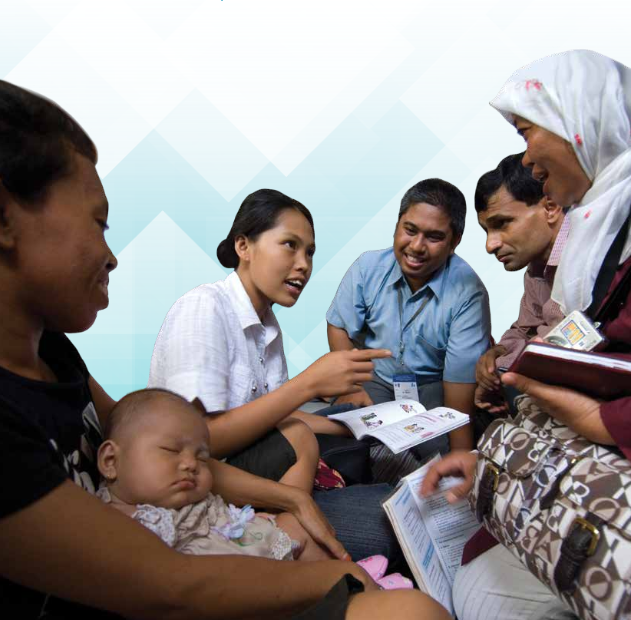WHO Recommendations on Home-Based Records for Maternal, Newborn and Child Health

Home-based records (HBRs) range from antenatal notes or vaccination-only cards, progressing to more expanded vaccination-plus cards, child health books, or integrated maternal and child health books, which often include health education messages. While HBRs have been widely implemented for decades and are used globally in some form, the evidence of the benefits and harms has not been systematically reviewed and summarised. Thus, the World Health Organization (WHO) Guideline Development Group (GDG) participated in two technical consultations in November 2017 and April 2018, which resulted in this guideline on HBRs for maternal, newborn, and child health (MNCH).
The primary audience for the guideline is policymakers and health programme managers of MNCH and immunisation programmes in ministries of health where decisions are made and policies created on the use and implementation of HBRs. The guideline is also aimed at health providers who use HBRs as a tool for recording information and providing health education or communicating key information. Development and international agencies and non-governmental organisations (NGOs) that support the implementation of HBRs may also find this guideline of use.
Two primary recommendations resulted from the GDG consultations:
- The use of HBRs, as a complement to facility-based records, is recommended for the care of pregnant women, mothers, newborns, and children, to improve care-seeking behaviours, male involvement and support in the household, maternal and child home care practices, infant and child feeding, and communication between health providers and women/caregivers. (Low-certainty evidence)
- There was insufficient evidence available to determine if any specific type, format or design of HBRs is more effective. Policymakers should involve stakeholders to discuss the important considerations with respect to type, content, and implementation of HBRs.
The rationale for these recommendations was as follows:
- The GDG considered the evidence presented and judged that, overall, the certainty of evidence of the effectiveness of HBRs was low. They recognised that the existing evidence base has limitations, including: the small number of studies found, half of which were conducted in high-income countries; the age of these, with some conducted before 2000; and the variety in the studies, which looked at different types of HBRs and measured a broad array of outcomes.
- The impact varied by outcome. Some studies showed a positive effect on maternal health immunisation care-seeking, outcomes related to a supportive home environment for maternal and child health (MCH) care, improved infant feeding and other child health care practices, improved child growth and development, improved continuity of care across MCH, and improved communication with health providers. However, there was also no significant effect reported on many maternal, newborn, and child care-seeking and care practice outcomes. For many outcomes, no studies were found.
- Although the evidence base has its limitations, the GDG determined that the desirable effects outweigh any undesirable effects, and also considered in their judgements the fact that HBRs have a long history and are implemented in at least 163 countries. Furthermore, they considered the qualitative evidence that reports women, caregivers, and providers from a variety of settings value different forms of HBRs. The GDG also noted that HBRs contribute to a larger objective of ensuring the right to access to information and are in line with global efforts for people-centred care, which WHO embraces.
Further remarks around these recommendations include:
- In remote and fragile settings, where health systems are weak or where health information systems are absent or poor, and in locations where caregivers may use multiple health facilities, HBRs may be of greater value than in more developed settings and health systems.
- Concerns about the privacy of online or electronic records were reported in studies. The GDG highlighted the potential sensitivity of information in HBRs on HIV testing, status, or treatment. Careful consideration should be given as to what personal information is necessary to include in HBRs in order to avoid stigma and discrimination.
- Countries currently using HBRs should consider appropriate use, design, and content, as well as sustainable financing to maximise their use and impact.
- Additional research is needed on the benefits of using HBRs for recording information on single aspects of care, versus HBRs that include wider MNCH aspects for health education purposes. Evidence was not available at this time to inform this priority question for countries.
Publishers
56
Posting from David Brown to TechNet-21, September 4 2018, and WHO website - both accessed on September 20 2018; and email from David Brown to The Communication Initiative on September 21 2018. Image credit: JICA
- Log in to post comments
